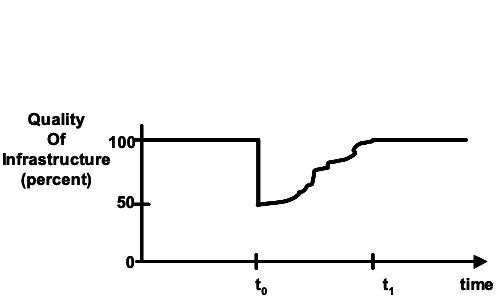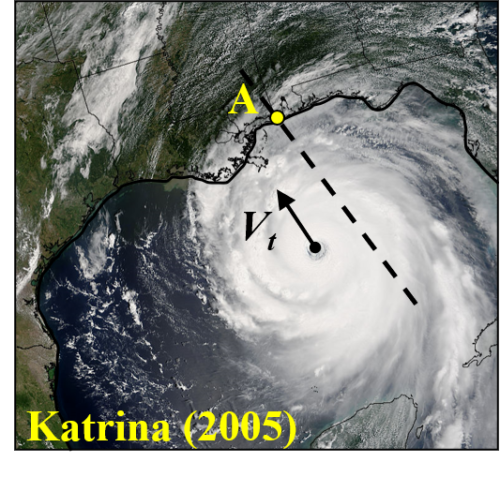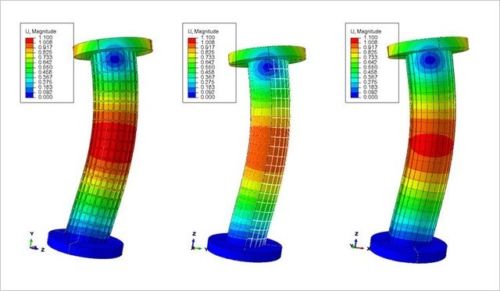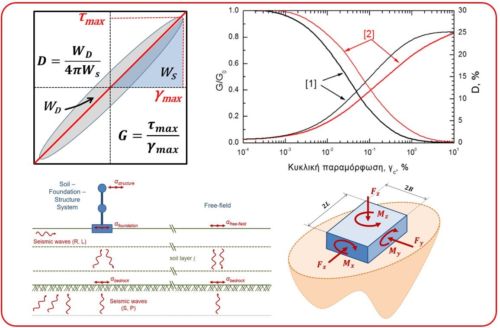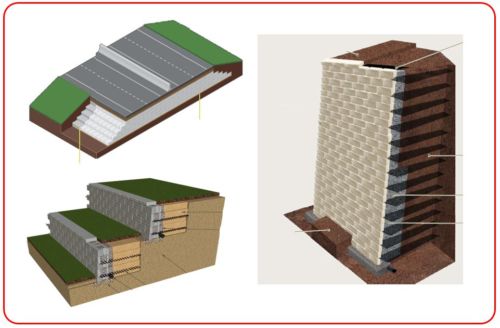- Definition of the notion of resilience
- Basic methods to assess resilience at component, system, system-of-systems and network level
- Design for resilience
- Resilience-enabling technologies – code provisions
- Climate variability: terminology, greenhouse gas emissions scenarios, climate models.
- Environmental hazards (earthquake, flood, fire, erosion): identification, characterization.
- Principles of sustainability and resilience in the infrastructure design and management: terminology, indices and assessment systems of infrastructure sustainability, methods of infrastructure resilience assessment, indicative examples (water basins, dams, flood protection works, water distribution networks, rainwater and wastewater networks, water treatment systems, wastewater treatment and reuse systems, protection and restoration of water ecosystems, coastal breakwaters, port quay walls).
- Resilience of transportation systems, disruptions due to events and emergencies, measurement of demand and network capacity in real time, evaluation of response scenarios and optimization of traffic redistribution in the network.
- Artificial intelligence / machine learning applications in civil engineering disciplines and in project and infrastructure management.
- Tools and technologies for the development of smart interconnected infrastructures.
Design principles for resilient, sustainable, and smart infrastructures
| Code | GPOL_R_16102 |
|---|---|
| Instructor | CHASIAKOS ATHANASIOS, DIMAS ANATHANASIOS, FAVVATA MARIA |
| eclass | https://eclass.upatras.gr/courses/CIV1827/ |
| Mandatory/Optional | Elective |
| Credits ECTS | 7,5 |
| ΠΕΡΙΓΡΑΜΜΑ ΜΑΘΗΜΑΤΟΣ |
Desired learning outcomes:
- Familiarization with the notion of resilience
- Use probability theory to build fragility curves
- Design for resilience
- Connection between climate variability, greenhouse gas emissions scenarios and environmental loads.
- Assessment methods of infrastructure vulnerability, sustainability and resilience.
- Transportation system disruption and emergency recovery management.
- Artificial intelligence / machine learning in construction and infrastructure management.
- Digital solutions for smart interconnected infrastructures.
Specific knowledge and competences:
- Determination of fragility curves
- Use of innovative technologies to achieve resilience
- Determination of assessment indices of infrastructure vulnerability.
- Determination of parameters in methods of infrastructure resilience and sustainability assessment.
- Evaluation of transport operation recovery solutions following incidents and emergencies.
- Engineering problem solving using machine learning tools.
- Application design for smart interconnected

